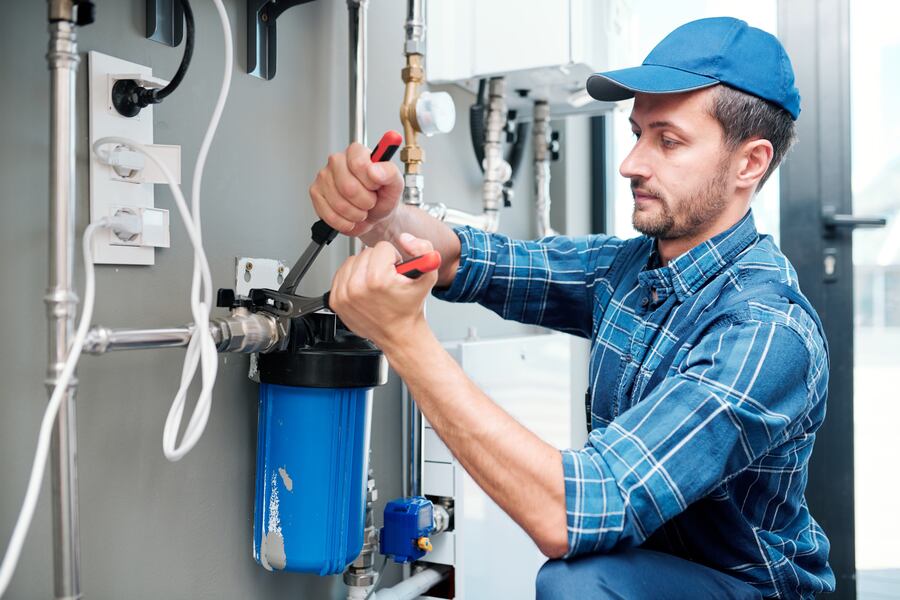Do you love that feeling when you step out of the shower, feeling amazing with smooth skin and silky locks? Well, that might just be due to a water softener! Water softeners are special systems designed to remove minerals such as calcium and magnesium that make water "hard," leading to build-up on pipes and less effective soaps and detergents. Proline Rooter explores what it means to have hard water and when you should consider water softener installation.
Knowing that your water softener may need repair is vital so you can address it before the problem becomes larger. Here are a few signs to look out for:

If the texture of your water suddenly feels harder when washing hands or bathing, that could indicate your softener needs attention. Hard water may make skin feel dry while hair becomes coarse, leading to further discomfort for both parties involved.
Is any white or chalky buildup around your faucets, showerheads, or dishes indicating an ineffective water-softening system? Such scale build-up indicates that your softener may not be effectively eliminating minerals from the water supply and needs repair or replacement to remain at its optimum performance level.
Has Your Shower or Sink Water pressure decreased recently? This could indicate that minerals have built up inside the pipes due to an ineffective water softener system.
A water softener uses salt to dissolve minerals in your drinking water and soften the content, so if your salt level doesn't seem to go down after several months or if large chunks of crystallized salt are present, it could indicate something is amiss with its operation.
Water softeners can be quite useful but occasionally need assistance to remain functional. Here are a few issues and what can be done about them:
A salt bridge occurs when a hard crust forms at the top of your brine tank. This crust prevents salt from mixing with the water below, ultimately stopping your softener from working as intended. Using a broom handle, you can remedy this situation by carefully breaking through this crust.
Your water softener features small resin beads designed to capture minerals. Over time, however, these beads may wear down or become clogged despite cleaning efforts; in such instances, they might require replacement.
Sometimes, all your system requires is some minor tinkering to get back up and running smoothly again. Double-check that all settings match what the manufacturer recommends in their manual. Maybe setting the clock correctly or altering hardness levels is just what's needed!
Preserving the health and condition of your water softener shouldn't be too challenging. Here are a few maintenance tips that may assist:
Be certain there is always sufficient salt in the tank and that it fits its designated purpose (block, tablet, or crystal salt suitable for softeners).
Inspect and clean your brine tank regularly to avert salt bridge issues and maintain smooth operation of everything within. This helps avoid potential roadblocks to growth and prevent problems, such as salt bridges, from emerging.
It is wise to test your water hardness levels periodically; test kits can usually be found at home improvement stores. This can tell you whether your softener is operating effectively.
Your water softener is integral to keeping your home comfortable by providing soft water that's gentle on everything from skin care products to pipes. Regular inspection and maintenance checks can keep it running well over the years; should something seem complex, seeking help may be beneficial in getting everything back into shape. This way, your system always delivers soft, fresh water to meet all the demands of daily living! Keeping an eye out for these details will guarantee a continuous supply of soft and clean drinking water in your home!
When it comes to plumbing, the jargon can often sound like a different language. One term you might encounter…
Water is the essence of life, and having clean, safe drinking water is something many of us take for…
Read More Jul 11,2024Garbage disposals are a staple in more than half of U.S. kitchens, diligently working to keep our drains free…
Read More Jul 08,2024If you have a gas-powered water heater working to provide you with hot showers and warm baths, then…
Read More Jun 27,2024